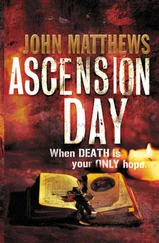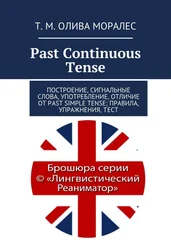John Matthews - Past Imperfect
Здесь есть возможность читать онлайн «John Matthews - Past Imperfect» весь текст электронной книги совершенно бесплатно (целиком полную версию без сокращений). В некоторых случаях можно слушать аудио, скачать через торрент в формате fb2 и присутствует краткое содержание. Жанр: Триллер, на английском языке. Описание произведения, (предисловие) а так же отзывы посетителей доступны на портале библиотеки ЛибКат.
- Название:Past Imperfect
- Автор:
- Жанр:
- Год:неизвестен
- ISBN:нет данных
- Рейтинг книги:4 / 5. Голосов: 1
-
Избранное:Добавить в избранное
- Отзывы:
-
Ваша оценка:
- 80
- 1
- 2
- 3
- 4
- 5
Past Imperfect: краткое содержание, описание и аннотация
Предлагаем к чтению аннотацию, описание, краткое содержание или предисловие (зависит от того, что написал сам автор книги «Past Imperfect»). Если вы не нашли необходимую информацию о книге — напишите в комментариях, мы постараемся отыскать её.
Past Imperfect — читать онлайн бесплатно полную книгу (весь текст) целиком
Ниже представлен текст книги, разбитый по страницам. Система сохранения места последней прочитанной страницы, позволяет с удобством читать онлайн бесплатно книгу «Past Imperfect», без необходимости каждый раз заново искать на чём Вы остановились. Поставьте закладку, и сможете в любой момент перейти на страницу, на которой закончили чтение.
Интервал:
Закладка:
She had been working with Donaldson on and off since 1979. She'd gained her degree and doctorate at Piedmont college and went into private practice for three years before realizing it didn't suit her and joined Donaldson. She'd admired Donaldson's papers and work with PLR even while at Piedmont. Three years later she’d started living with a local architect, but much to her father's disappointment — except for the compensation that she kept the family name — they never married. After a first miscarriage, Sebastian was finally born in 1985. Donaldson was particularly understanding, allowing her three years off until Sebastian was at pre-school. But the more intensive period of work when she returned put extra pressure on an already strained relationship and within another two years she was separated.
It was only during that period that she gained her main focus of where she wanted her work to head. Donaldson's work had concentrated almost exclusively on regressions while awake, conventional question and answer sessions. This meant that he could normally only work with children up to seven or eight, beyond that age conventional memory of past lives was invariably erased. Sometimes the memories faded earlier, particularly in societies where reincarnation was not accepted; all too often past recalls were labelled as merely infantile fantasy. Much of Donaldson's work had therefore taken place in India and Asia where re-incarnation was fully accepted, children with recall were not stifled by their parents.
Apart from the restrictions of conducting conventional sessions, did she really just want to follow in Donaldson's footsteps? The answer to both was no, but where to find her own niche? While she was attracted to the broader parameters of age and culture that hypnotic regressions allowed, Donaldson had pointed out that so many practising regressionists used hypnotism: how would she be different?
Donaldson had also built up one of the most impressive bodies of PLR work ever recorded with children, and she didn't want to totally turn her back on that legacy. In the end she chose what she hoped was the ideal compromise: hypnotic regressions, but with a high quota of children and specific focus on xenoglossy.
Most practitioners of hypnotic regressions had quotas of no more than twelve percent with children, largely due to the difficulties of gaining parental approval for hypnosis. She hoped to raise that quota to at least thirty percent. The occurrence of xenoglossy also had stronger significance with children: opportunity to learn the language adopted was far less.
In the middle of battling through one of her most difficult cases, Donaldson had commented, 'Just satisfy yourself, Marie. If in doing so you also satisfy the doubters and critics, then so be it. Set out just to please the critics and you'll be lost. They'll sense your vulnerability, know that you're just playing to the gallery, and have you for breakfast. Why do you think I never do live appearances?'
The case had looked ideal at first: nine year old son of a Cincinnati doctor, originally regressed to cure agoraphobia, fear of wide open spaces. A past life as a Mexican Conquistador was uncovered. He became detached from an expedition due to a lame horse and spent days roaming in the Coahuila desert before dying of heat exhaustion and exposure. The Spanish was convincing, and she was already arranging additional sessions to prove the other areas of authenticity — geography, period events, customs and dialect — when the boy's father phoned. His son's main phobia had been cured, he didn't want to risk his son being disturbed with continuing sessions.
She was destroyed. No Oprahs or Donahues this time either. Donaldson was right: she'd invited the let down, played too much to the gallery. But it was difficult not to be influenced by the years of scepticism. Seeing Donaldson's pre-dominance of regressions in Asia dismissed by one critic as having 'scant relevance. There is far too much suggestion within the society of re-incarnation. Young children, already with over fertile imaginations, could too easily be led.'
It had been one of her main reasons for avoiding cases from that region. They were less accepted by the gallery. The University would have swallowed any lame excuse: case studies in the US and Europe were less draining on research funds. She knew that one good mainstream case — such as the Cincinnati boy — would not only boost her career but throw fresh light on the whole profession. PLR for the masses. The kid next door with average grades suddenly speaking fluently in a foreign tongue, with a linguistic expert and historian riding shotgun for authentication. Okay, now we believe you!
Marinella Calvan wondered whimsically if Eyran Capel might be her ticket to Oprah. Probably not. She'd become excited before and been disappointed. Too much could go wrong: the boy's godparents could refuse continuing sessions, the boy could suddenly claim to be Marshal Petain or Maurice Chevalier, his French could turn out to be no better than phrase book rudimentary, or he could have holidayed or gone on school exchanges regularly in France. It was too early to get excited.
TWENTY
After the reconstruction, Molet's hopes had sunk of being able to clear his client, and the witness instruction before Christmas if anything lowered them still further. Madame Veillan was very sure of the time she saw Machanaud coming out of the lane: 'Just after three o'clock.' Marius Caurin was next with the time he found the boy, and then the other people who had seen Machanaud that day: Raulin where he was working that morning and the various barkeepers; Henri from Bar Fontainouille and Leon who had seen him from three-fifteen onwards. Repeats of the main testimonies which had ripped apart Machanaud's original police statement. Now all officially recorded for full trial.
Molet could imagine the image that would be built up at full trial for the jury. A day in the life of a low-life vagabond: some casual farm labour followed by a few swift eau de vies, then heading out half drunk for some poaching. Only he sees the boy and decides to spice up his lunch hour with a bit of buggery and murder. Then back to the bars again, to what: Celebrate? Drown his regrets, steady his hands again… or perhaps blot out the horror of the bloodied images still with him? Or was it that Leon's at three-fifteen was part of his regular routine and he wanted to make sure everything appeared as normal.
Molet knew that the statistics for people cleared at the final trial, having gone completely through instruction , were grim: less than eight percent. The best chances of acquittal were during instruction with the examining magistrate; but that now looked unlikely with Machanaud. He would go the full course.
The only way to introduce a lesser charge was if Machanaud admitted the assault, said that he'd only hit the boy to knock him out, there had been no intention to kill; try to get a manslaughter charge introduced which normally carried a five to eight year sentence. He'd mentioned it one day to Machanaud, tried to make him realize how heavily all the prosecution evidence weighed against him, but again Machanaud protested his innocence, was almost outraged at the suggestion. '..I'd rather that they did hang me or send me to Devil's Island than admit to something I didn't do.'
In February, the instruction hearings started to involve witnesses more as character assessments of Machanaud. Molet watched Machanaud's ex-girlfriend give evidence to his unpredictable and sometimes violent nature, then a succession of townspeople testifying to his drinking habits and his oddball nature — and Molet was suddenly struck with an idea. Perhaps he'd be able to save his client's neck after all.
Читать дальшеИнтервал:
Закладка:
Похожие книги на «Past Imperfect»
Представляем Вашему вниманию похожие книги на «Past Imperfect» списком для выбора. Мы отобрали схожую по названию и смыслу литературу в надежде предоставить читателям больше вариантов отыскать новые, интересные, ещё непрочитанные произведения.
Обсуждение, отзывы о книге «Past Imperfect» и просто собственные мнения читателей. Оставьте ваши комментарии, напишите, что Вы думаете о произведении, его смысле или главных героях. Укажите что конкретно понравилось, а что нет, и почему Вы так считаете.












